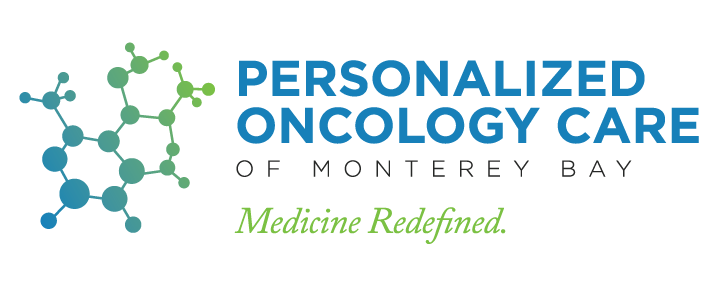A fourth-generation physician starts yet another chapter in an eventful life
HER GREAT-GRANDFATHER was Jewish. He wanted to be a doctor — an ophthalmologist — but in his home in Russia, near the turn of the 20th century, such a thing was impossible because of rampant prejudice. It was, after all, the era of pogroms — violent attacks that targeted Jewish communities.
So, Arina Ganeles’ great-grandfather made his way to Sweden. On the way, he met a midwife and fell in love with her, and promised to come back for her when he finished school.
He did. They wed and moved to Siberia, where Jews were permitted to practice medicine. He went on to help organize a medical school there, in the city of Omsk. And his son became a doctor, and so did Ganeles’ father, along with several other family members.
By the time Ganeles was born in 1957, the family had moved to what was then called Leningrad (now St. Petersburg). She finished high school, and then completed medical school.
Changing goals
The following year, she was doing research in a state-of-the-art oncology center when her mother — also a doctor and clinician — died from multiple sclerosis. During that year, Ganeles said, as she watched her mother’s decline, her own goals changed. She realized she didn’t want to be a researcher, like her father, but instead wanted to treat patients.
Since she was already in an oncology center, going into the specialty made sense. She was highly respected, and worked with bone marrow transplants, treating some of the survivors of the Chernobyl nuclear disaster in 1986.
Although she had professional success, she said she grew more and more uncomfortable with the Soviet government. “I left because I couldn’t live in a country of ‘alternate truth,’” anymore, she said. It was an uncertain time, with food shortages and a great deal of crime. It took two years, but Ganeles got a tourist visa, and with one suitcase, all of her diplomas and $200 — all she was allowed to take — she came to the United States in 1990, even as Soviet-style Communism was on its last legs.
“My father said, ‘Please never come back,’” because he wanted a better life for her.
A work permit
After arriving in Los Angeles, she went to the immigration office to do what was then still called “defecting.” In those days, there was little help for newcomers to the nation. “They took my application, gave me a temporary work permit, and that was it.” She was on her own, but she was in America. And she had a lot of determination.
While standing in line at the office, she met a fellow defector, Eugene Ganeles. “He had one backpack and a guitar,” she remembered. He was a mathematician, also from Leningrad, and to their surprise, they had some mutual friends. They fell in love, and got married a few years later.
But first, they each went about the task of starting over. They both spoke some English, as they had taken classes since elementary school. Arina stayed with friends she had met through her work in Russia while she looked for a job, and Eugene found employment at a collections agency.
Ganeles got a job as a research assistant at Cedars-Sinai Medical Center in Los Angeles while training to become a doctor in the United States. She said she learned to live very simply — including in a studio in an apartment building she shared with a fair number of prostitutes — so that she could plow money back into her education.
Humble beginnings
When the wedding finally came, it was a low-key affair. “We went to Vegas,” she explained, “because he got a plane ticket that was buy-oneget-one free. We got married and then he took me out to an all-youcan-eat buffet. We didn’t even stay overnight.”
She then completed a three-year residency at the University of Massachusetts in Worcester, Mass., and a fellowship in hematology and oncology at Boston University, where she became the chief fellow of hematology/oncology. She was able to pay for the expensive schooling with the money she made as a resident, and her husband got his license as a CPA while working various other jobs.
She also had a son who seemed to be sick a lot of the time, so she and her husband decided to move back to California for the climate. They didn’t want to go back to Los Angeles, so she applied for five jobs in the Kaiser system in Northern California.
Not for want of trying
However, she heard from her program director at Boston University that an alum who worked at Monterey Bay Oncology/Pacific Cancer Care in Monterey was retiring, and wanted someone to take over his practice. When she visited Monterey, she fell in love with the area and quickly decided to take the professional opportunity. She was home.
That was 2001. She still wasn’t a citizen, but not for want of trying. She said that at some point, her records went missing, so the government just kept renewing her work visa. After her husband got his citizenship, she was also granted hers because they were married. There were interviews where they had to prove that their marriage of more than 10 years was the real deal, and finally, in 2006, she raised her hand in San Jose to take the oath.
“I was very relieved,” she said of the moment. She said that her heart goes out to people still trying to get to this country, because she remembers the difficulty of making the decision and the journey, and the uncertainty of the time before her citizenship was finalized.
“My husband and I both have proved the American dream.” Ganeles said. They live near CHOMP, and are grateful and happy to be here. Now Ganeles is starting over yet again. She left Pacific Cancer Care at the end of 2016 and is opening her own practice, Personalized Oncology Care of Monterey Bay, on Cass Street in Monterey. She’ll work with cutting-edge diagnostic and treatment techniques tailored to individual patients. She’s particularly concerned with preventing breast cancers and gynecological cancers, but will work with other kinds of cancers as well.
“I want to treat the whole person,” Ganeles said, taking into account patients’ lifestyles, as well as psychological and social factors. She said she prided herself on getting to know her patients. “I remember them long after they pass on,” she said. “They live in me.”


